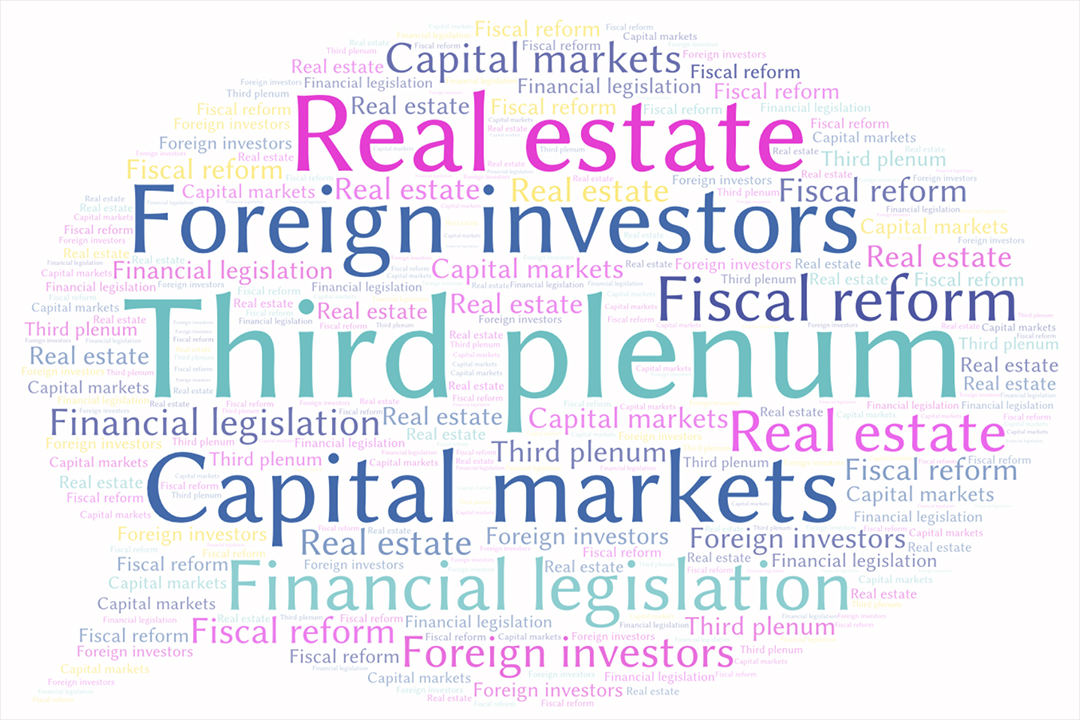Plenum Explained: Implications for China’s Finance and Economy
Listen to the full version

Reforms to address existing economic challenges, including stabilizing the capital markets, reviving the ailing property sector and relieving indebted local governments, are at the core of a plan released Sunday following the conclusion of the Third Plenum of the 20th Central Committee of the Communist Party.
Some market observers see the dozens of reform measures that make up the resolution as broadly sticking to the top leadership’s vision for the world’s second-largest economy.

Download our app to receive breaking news alerts and read the news on the go.
Get our weekly free Must-Read newsletter.
- DIGEST HUB
- Key reforms introduced include stabilizing capital markets, reviving the property sector, and alleviating local government debt, as per a plan from the Third Plenum of the 20th Communist Party Central Committee.
- Measures for capital markets involve reducing administrative controls, supporting foreign investment, and prioritizing risk prevention over regulation.
- New proposals include drafting a unified financial law and revising how resources are allocated between central and local governments, focusing on tax revenue and debt management.
The Communist Party's Third Plenum of the 20th Central Committee has concluded with a plan to tackle various economic challenges in China, including stabilizing capital markets, reviving the housing sector, and alleviating local government debts [para. 1]. This plan aligns broadly with the top leadership's vision for the world's second-largest economy, although it features nuanced signals and new statements [para. 2].
Capital market stability is a significant concern for foreign investors. The resolution aims to leverage the role of the market in resource allocation and reduce improper government intervention in capital pricing [para. 3]. Analysts noted that this move would alleviate market concerns over administrative measures that have led to increased volatility over the past year [para. 4]. Temporary measures like banning short-selling and freezing IPOs are expected to be replaced by improved long-term rules to let the market play a bigger role [para. 5]. Additionally, the priorities for the capital market outlined in the resolution—preventing risk, strengthening regulation, and promoting high-quality development—differ slightly from the guidelines issued by the State Council [para. 7]. Analysts interpret the emphasis on risk prevention as a focus on proper rule-setting for risk control [para. 9].
The plan also addresses foreign investment, pledging to ease the operations of equity investment and venture capital for foreign investors and supporting the participation of eligible foreign institutions in financial pilot projects [para. 10]. Furthermore, policymakers promised to reduce barriers to foreign investment, including shortening the negative list that restricts or prohibits certain industries from foreign investment [para. 11].
Another significant aspect of the plan is the formulation of a financial law—something that China has never had [para. 14]. The goal is to unify the scattered financial regulations into a comprehensive framework, improving regulatory responsibilities and coordination between central and local governments [para. 15][para. 17].
The leadership also promises to address the ongoing slump in the real estate sector, which has significantly impacted the economy [para. 18]. Local governments will have more autonomy in regulating their own real estate markets, including the potential abolition of homebuying restrictions [para. 19]. Reforms will also target the financing of real estate projects, the pre-sale system for housing, and the taxation system in the industry [para. 20].
In terms of fiscal reform, the plan seeks to balance the fiscal relationship between central and local governments to ensure an equitable distribution of resources and responsibilities [para. 21]. To this end, the resolution hints at placing more fiscal resources at the disposal of local governments by expanding local tax revenue sources and granting greater tax management authority [para. 22]. This marks the first time such statements have appeared in an official document [para. 23]. Alongside, the plan outlines the need to optimize government debt management by developing systems to monitor and regulate local government debt and implementing long-term mechanisms to mitigate risks from hidden debt [para. 25][para. 27].
The proposed reforms indicate a concerted effort by the Chinese government to stabilize its economy by addressing crucial areas like capital markets, foreign investment, real estate, and the central-local fiscal relationship [para. 1][para. 3][para. 10][para. 18]. These measures aim to foster a more stable and attractive environment for both local and foreign investors while seeking sustainable economic development.
- Macquarie Group Ltd.
- Macquarie Group Ltd. is an Australian multinational investment bank and financial services company. In the article, economists at Macquarie noted that the reforms stemming from the 3rd Plenum are primarily a reaffirmation of existing policies. They highlighted nuanced signals and new statements but described the overall direction as consistent with past policy stances.
- Morgan Stanley
- Morgan Stanley analysts noted that the resolution emphasizes the market's role in resource allocation and aims to reduce market concerns about administrative measures impacting capital pricing. They argued that temporary solutions like banning short-selling and freezing IPOs should be replaced by improved long-term rules, prioritizing risk prevention through proper rule-setting in financial reforms.
- April 2024:
- State Council released guidelines for promoting capital market development.
- Sunday, July 21, 2024:
- Plan released to address economic challenges following the conclusion of the Third Plenum of the 20th Central Committee of the Communist Party.
- Sunday, July 21, 2024:
- Macquarie Group Ltd. economists released an analysis on the Third Plenum's resolution.
- Sunday, July 21, 2024:
- Morgan Stanley analysts released a report noting the resolution's approach to stabilizing the capital markets.
- PODCAST
- MOST POPULAR






 Sign in with Google
Sign in with Google
 Sign in with Facebook
Sign in with Facebook
 Sign in with 财新
Sign in with 财新